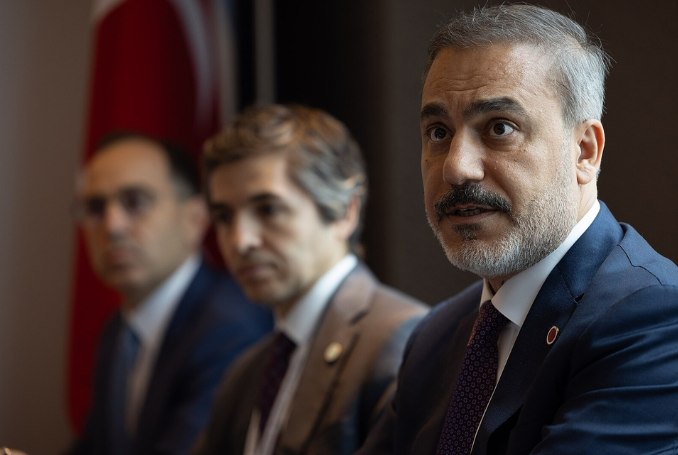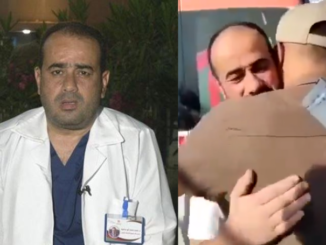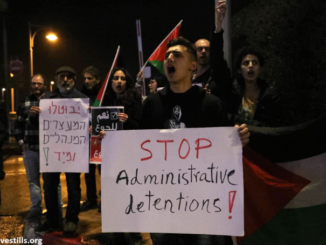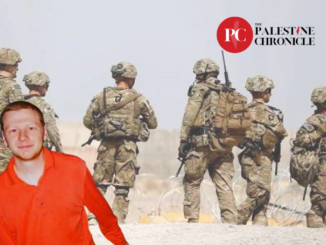
In May, Turkiye announced its decision to join the case initiated by South Africa, stepping up its measures against Israel in response to the ongoing genocide in Gaza.
Turkiye is set to submit a declaration of intervention on Wednesday in South Africa’s genocide case against Israel at the International Court of Justice (ICJ) in The Hague, Reuters news agency reported, citing a diplomatic source.
“Turkey’s intervention pushes the international community to recognize and address the humanitarian crisis in Gaza,” the source said, according to Reuters.
The declaration is scheduled to take place at 1:30 pm GMT, following an earlier statement by Foreign Minister Hakan Fidan that Turkiye would make this move on Wednesday.
International Court of Justice Orders Immediate Halt of Israel’s Operation in Rafah – BREAKING
In May, Turkiye announced its decision to join the case initiated by South Africa, stepping up its measures against Israel in response to the ongoing genocide in Gaza.
Spain also requested to intervene in the case in June.
Plausible Risk of Genocide
On December 29, the South African government brought the case against Israel before the ICJ, accusing it of “genocidal acts” in its military campaign in Gaza.
Public hearings on South Africa’s request were held on January 11 and 12.
In January, the ICJ called on Israel to avoid actions that could lead to genocide and to facilitate humanitarian access to Gaza.
‘It Came as a Great Surprise’ – Israel Begins Defense at ICJ Following Urgent Appeal
A few weeks later, South Africa requested additional measures in response to Israel’s announced intention to attack Rafah, but the court rejected this request.
At the beginning of March, South Africa renewed its request for emergency measures against Israel.
Later that month, the court ordered Israel to ensure the delivery of “urgent humanitarian aid” to Gaza, in light of “a famine that has begun to spread” in the war-torn Strip.
Genocide Case
Recently, countries including Libya and Egypt announced their intention to support South Africa’s lawsuit in the genocide case against Israel in the ICJ.
These hearings are part of an ongoing case in which Israel is accused of genocide.
It is important to note that the rulings and orders of the ICJ are binding and cannot be appealed, although the court has no enforcement mechanism.
However, an order against a country can damage its international reputation and set a legal precedent.
‘No Power on Earth Will Stop Israel’ – Tel Aviv Adamant ahead of ICJ Ruling
Ongoing Genocide
Flouting a UN Security Council resolution demanding an immediate ceasefire, Israel has faced international condemnation amid its continued brutal offensive on Gaza.
Currently on trial before the International Court of Justice for genocide against Palestinians, Israel has been waging a devastating war on Gaza since October 7.
According to Gaza’s Ministry of Health, 39,677 Palestinians have been killed, and 91,645 wounded in Israel’s ongoing genocide in Gaza starting on October 7.
Moreover, at least 11,000 people are unaccounted for, presumed dead under the rubble of their homes throughout the Strip.
Israel says that 1,200 soldiers and civilians were killed during the Al-Aqsa Flood Operation on October 7. Israeli media published reports suggesting that many Israelis were killed on that day by ‘friendly fire’.
GAZA LIVE BLOG: Evacuation Orders in Gaza | Shelling in Deir Al-Balah | ‘Choosing Sinwar’ – Day 306
Palestinian and international organizations say that the majority of those killed and wounded are women and children.
The Israeli war has resulted in an acute famine, mostly in northern Gaza, resulting in the death of many Palestinians, mostly children.
The Israeli aggression has also resulted in the forceful displacement of nearly two million people from all over the Gaza Strip, with the vast majority of the displaced forced into the densely crowded southern city of Rafah near the border with Egypt – in what has become Palestine’s largest mass exodus since the 1948 Nakba.
Later in the war, hundreds of thousands of Palestinians began moving from the south to central Gaza in a constant search for safety.
(The Palestine Chronicle)









